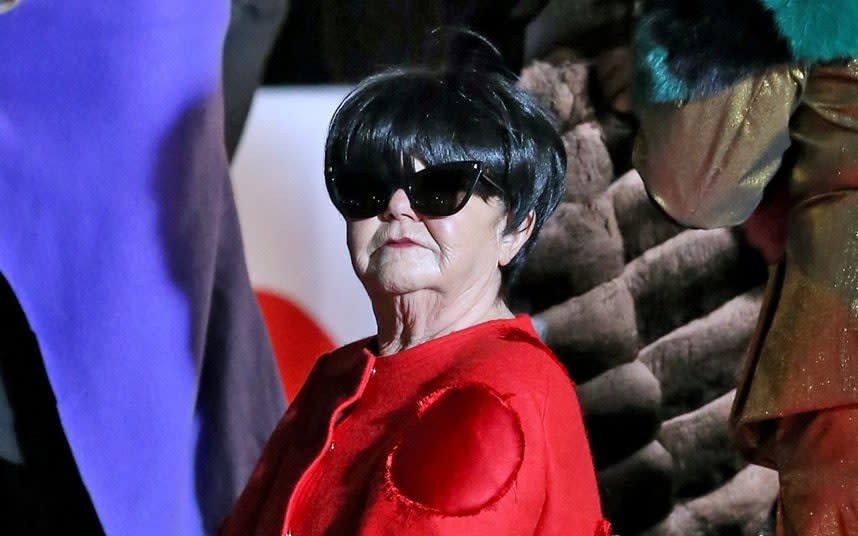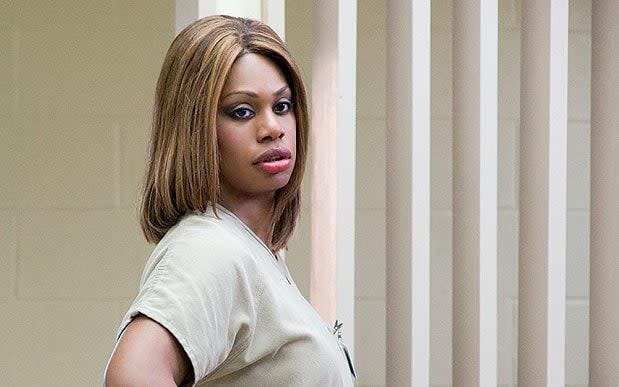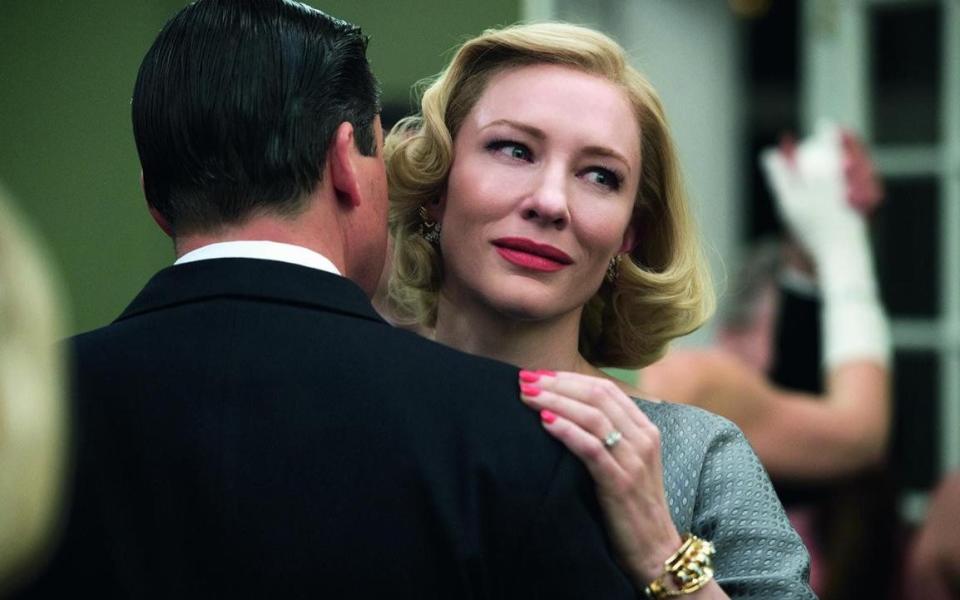Ab Fab film: 'Yellowface' isn't racist - it's called acting?

I can think of at least three times in the past month when people furiously demanded questions from Hollywood producers.
Activists, campaigners and movie-goers wanted to know:
Why the trans protagonist of The Danish Girl was played by cis actor (someone who identifies with the gender they were born as) Eddie Redmayne?
Why did lesbian movie Carol feature straight actors Rooney Mara and Cate Blanchett?
Why was cis actor Benedict Cumberbatch playing a non-binary actor in Zoolander 2?
To the complainants, it's frustrating that while Hollywood is finally accepting that LGBTQ people exist (that’s lesbian, gay, bisexual, trans and queer), little effort is being made to include actors who are on that gender and sexuality spectrum.
This week, the debate widened to include race.
American Korean actress Margaret Cho has picked up on the fact that the new Absolutely Fabulous film features Scottish comedian Janette Tough playing a male Japanese fashion designer called Huki Muki.
Cho wasn’t pleased. She tweeted: “I AM F****** SICK OF YELLOWFACE. Have some respect. Hire Asian actors 4 Asian roles. I’m not going to name the production but I’m DISGUSTED!”
She later decided to call out Ab Fab, writing: “I was thrilled about #abfabmovie but now I just can’t be. I’m very disappointed… It's hard enough to get into film and TV as a person of color - and when roles written for us are played by white actors - it's an outrage.”
Cho’s comments are an extension of the ongoing debate around political correctness in 21st century moving making: do actors need to ‘be’ what they’re playing?
It's hard enough to get into film and TV as a person of color - and when roles written for us are played by white actors - it's an outrage.
— Margaret Cho (@margaretcho) December 14, 2015
I love AbFab but #YELLOWFACE is something I cannot watch - I just can't. It's sad when heroes are no longer heroic. Too bad. #racism
— Margaret Cho (@margaretcho) December 14, 2015
It’s easy to answer in many instances, when it would be utterly ridiculous to say that actors need to have experienced the same issues as their on-screen counterparts. You don't need to have suffered from cancer to play a person with the illness.
But when it comes to identity – whether gender, sexuality or race – the answers are more nuanced.
"We need more LGBTQ and ethnic minority actors on screen, but they don’t necessarily have to play the ‘token gay’ or ‘token black guy’."
Most people celebrated when trans actress Laverne Cox played a trans role in Orange is the New Black, and the same show was praised for using lesbian actresses Ruby Rose and Lea DeLaria to play lesbian characters.
There's talk of the next James Bond being black actor, Idris Elba, and when Viola Davis became the first black woman to win an Emmy, the world rejoiced.
We know that diversity can only be positive, and we still have a long way to go before we live in a truly equal and representative society. But while we need more LGBTQ and ethnic minority actors on screen, but they don’t necessarily have to play the ‘token lesbian’ or ‘token black guy’.

Why should gay actors be forced to play gay roles? Wouldn’t a trans woman perhaps appreciate a chance to play a cis female without having to highlight her gender history? And maybe a straight person would relish the chance to explore their sexuality on screen?
I put the latter half of that question to Cate Blanchett, when I interviewed her recently about her recent movie Carol.
“I played a mother before I’d been a mother,” she told me. “I’ve played people with mental illness without actually having to be mentally ill. Your role as an actor is to imagine yourself into someone else’s reality. When you work with directors who ask you to enter a reality that you haven’t necessarily lived, it expands your sense of what it means to be human.”
Of course the same doesn’t necessarily work for skin colour. A white actor dressing up as a black person would be classed as 'blackface' - a fundamentally racist act that echoes notorious TV programmes, such as The Minstrel Show.
But that isn't to say that actors can't take on other races at all - that often comes down to the motive behind it.

Sacha Baron Cohen has acted as Kazakhstani Borat, Austrian Bruno and African General Haffaz Aladeen. In essence, he’s guilty of brownface, blackface, easterneuropeface – whatever you want to call it.
Each of his films has been met with criticism, but they’ve also been widely enjoyed. He makes great comedy – and for something to be truly funny, it has to go near those areas we find uncomfortable. His films don’t just make people laugh via racial stereotyping; he also depicts racist characters, who sharply bring prejudice into the light.
It’s hard to judge the Ab Fab movie without even seeing a trailer, but looking back at the TV shows, I don’t doubt that Huki Muki will be a wonderfully amusing character. No doubt the role will make fun of the fashion industry, Eddie and Patsy - and yes, perhaps even Japan.
"Do we really want to live in a world so politically correct that no races or nationalities can be subjected to good-natured humour, and every actor has to display the same identity traits as the roles they play?"
But is it really so shocking to mock a nation? Britain has been the butt of many jokes and will continue to be in the future. No country is immune to satire – and nor should it be.
After all, do we really want to live in a world so politically correct that no race can be subject to good-natured humour, and every actor has to display the same identity traits as the roles they play?
For the sake of humour, free speech - not to mention good cinema - I’d rather stay as we are.

